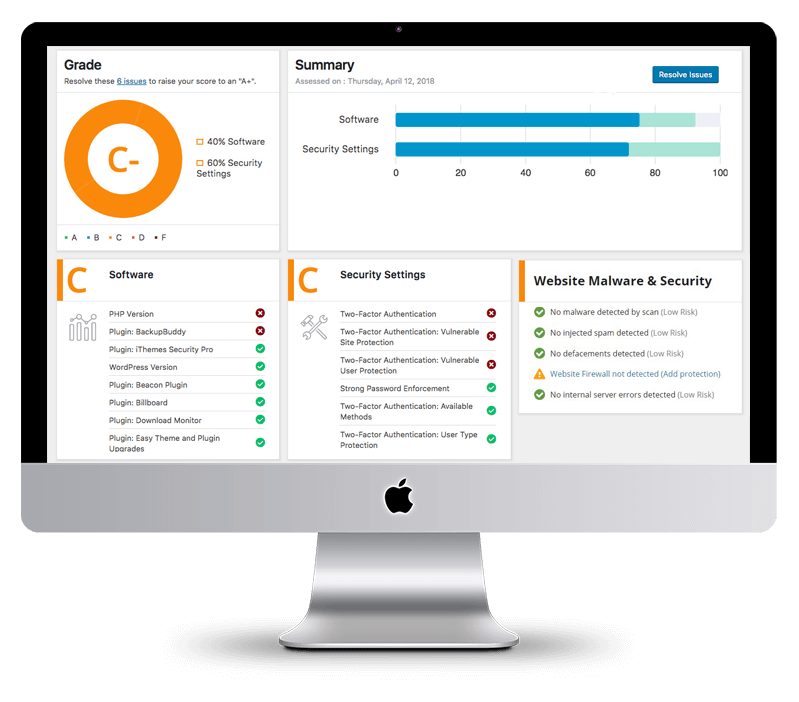As I write this, the world is still trying to come to grips with the COVID-19 pandemic, and the real estate world has taken some knocks in the process. Sales have slowed down due to fears about exposure. Financial issues stem from the businesses affected and jobs lost — but they haven’t ground to a halt altogether, and they never will.
People are becoming accustomed to living their lives while social distancing. They are taking proper precautions, so they can get things done and stay safe, but they also have a greater desire to move. Some want to downsize in light of their compromised monetary situations. Others (those who’ve been able to keep working at the same pace) are so frustrated from being stuck indoors that they want to change things up.
The point I’m making is that real estate agencies shouldn’t be so quick to dismiss 2020 and look ahead to a better 2021. They can still do reasonably well this year, but will need to be at peak performance. That means having an exceptional website. In this post, we will look at five tips you can use to craft a trustworthy real estate website that customers will flock to.
Offer Useful Industry Suggestions
Finding a suitable property at an acceptable price is just one part of the puzzle. Before that step, a prospective buyer must get their finances in order, decide what they’re looking for and know what locations to consider. After that step, they need to think about having a survey done, appointing a suitable representative, figuring out a timeframe and then deal with the wait.
Smart real estate agents know they don’t stand to benefit from overlooking these other elements of the buying process. In fact, they stand to lose out. They can offer perfectly suitable properties that visitors (particularly those who’d be first-time buyers) decide against bidding for. This is because they don’t really understand what they need to do.
What you should do is include an FAQ section to cover questions about buying and selling property. Mention relevant resources visitors can consult.
You can even make suggestions about services people can use for other parts of the process. You could link them to a mortgage broker like Breezeful, for instance, on the basis that they’ll most likely need to arrange a mortgage at some point. The more value you can provide through information and links, the more trust you’ll earn.
Prominently Display Testimonials
Social proof is essential for convincing people that your business is both legitimate and worthy of their attention, particularly for something like real estate. Working with a bad real estate agent is extremely frustrating. You could end up missing out on great property options due to sluggish responsiveness. Or even waste time looking at bad properties that were misrepresented.
As soon as someone arrives at your real estate website, they should see some positive user reviews. Ideally, offering glowing endorsements of every aspect of your service. Don’t fabricate them if you don’t have any: it will be obvious. Instead, get into the habit of asking your happy customers to offer some comments. It’s simple enough.
Take a Mobile-First Approach
Many people looking at properties while stuck at home will be using mobile devices. Mostly smartphones, but also tablets, which generally suit property websites. If you first design your website to work well on desktop devices, you’ll still need to adapt it for mobile views, and it won’t end up looking as good as it really should.
This is why you should use a mobile-first design approach. Build your website to look great on mobile devices, then ensure that it scales up adequately well on desktop screens (use a reliable theme to save time). Using this design philosophy also makes it easier to provide a mobile application. It will make your site a PWA (progressive web application) and is easily done for WordPress sites.
It’s also worth considering the increasing SEO value of having a well-designed mobile optimized site. Google already flags sites that don’t work well on mobile screens in the mobile search. It’s perfectly possible that it will flag them in a regular search at some point (or that the two searches will essentially combine).
Include a Strong Search Filter
There are two big reasons why it’s important to provide a strong search filter through your real estate website. Firstly, it shows that the company understands what its prospective customers are looking for (and is invested in helping them). If you don’t provide the options your visitors want, they’ll assume that you’re incompetent or indifferent — and neither is good.
Secondly, it proves that you take the time to properly tag your properties with things like how many bedrooms there are or what parking is available. Many property buyers are extremely particular about what they’re looking for, and they want to trust the descriptions they find. However, they’ve seen enough that are inaccurately described. A great search function will help.
Optimize Property Listings
Lastly, you need to ensure that your property listings are fully optimized. They need to be accurate and suitably tagged, as we just noted, but they also need to be fleshed out to include anything and everything that prospective buyers might want to see. One or two images of a property won’t suffice. You need images of every room, preferably from multiple angles.
If you can record 360-degree videos of the different rooms (Immersion VR has a good guide to this), that would be extremely helpful. A recorded tour of the property would also add to each listing, particularly when the prospect of having an in-person tour isn’t tremendously appealing at the moment. High-quality imagery can make all the difference when trying to make a property seem optimally desirable.
There’s also the matter of your property copy. How are you describing the properties you’re listing? If you’re using hyperbole riddled with typos, you’re making things so much worse. All that suggests is that you don’t really believe the property is worthwhile and that you’re careless, respectively. Polish your copy, offer positive and fair descriptions and be succinct.
There you have it: five tips for crafting a great real estate website that can get results in 2020. It’s a tough time for the industry, but that’s no reason to give up on the year. There’s still more to achieve, and having a great website is the first step along the way.
We can help you build an extraordinary and clean professional website that is easy for your customers to navigate. Take a look at our epic web design portfolio here.

Rodney Laws is an ecommerce expert with over a decade of experience helping entrepreneurs build and grow online businesses. He specializes in reviewing ecommerce platforms, optimizing user experience, and guiding brands toward higher conversions. His insights have been published on leading industry sites including UsabilityGeek, G2, Spendesk, and PPC Hero.
As the editor at EcommercePlatforms.io, Rodney combines hands-on knowledge with clear, actionable advice to help business owners choose the right tools and strategies. When he’s not testing the latest software or analyzing trends, he’s sharing practical tips that make complex ecommerce decisions simple.







